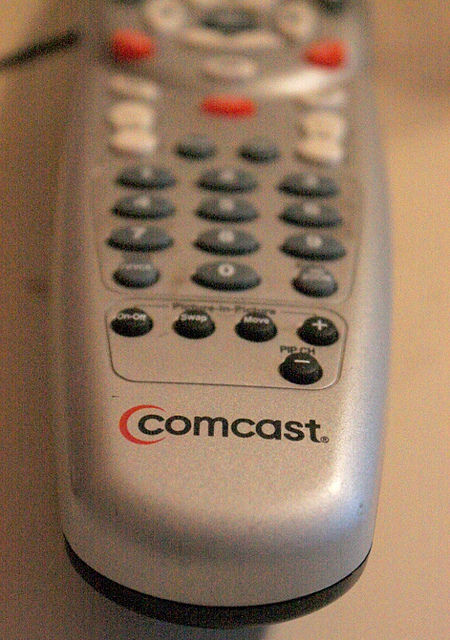The US department of Justice’s antitrust division is almost close to passing a recommendation to stop the country’s largest ISP company Comcast from acquiring Time Warner Cable, according to a report in Bloomberg.
While Comcast is the biggest Internet Service Provider and cable company in the US, Time Warner comes in the close second position. Together, the companies would account for 30 million subscribers making the market skewed in the favor of them. Attorneys are currently investigating Comcast’s $45.2 billion merger proposal to create a cable behemoth.
“There is no basis for a lawsuit to block the transaction,” said Sena Fitzmaurice, a Comcast spokeswoman. The merger “will result in significant consumer benefits - faster broadband speeds, access to a superior video experience, and more competition in business services resulting in billions of dollars of cost savings.”
Meanwhile Time Warner Cable spokesman Bobby Amirshahi said “we have been working productively with both DOJ and FCC and believe that there is no basis for DOJ to block the deal.”
While in the surface, it does not seem like there is an overlap between the traditional cable markets of Time Warner when compared to Comcast’s business, these companies have bigger say in the way they negotiate with network owners and other content providers, which will affect the competition in this market.
Only last year popular video streaming service Netflix took Comcast to court arguing that the latter forced the former to pay unfair charges to deliver content to Comcast customers. The Federal Communications Commission took this dispute as a primary example when making modifications to its net neutrality guidelines. Comcast currently has a good bargaining position with network companies. But when it adds Time Warner to its kitty, the position gets even bigger. Already, Netflix, as well as ISPs such as Level 3 and Cogent, have raised concerns about Comcast's business practices. When considering that cable and Internet Service market are the least competitive ones in the US domain, the anti-trust lawyers must act as quick as possible to avoid huge market implications as well as adding to the debate on Network Neutrality.
The FCC changed its network neutrality guideline two months ago approving new, stronger network neutrality rules to regulate internet access like a public utility. While Network neutrality supporters hailed the proposal, Congress Republicans argued that it will lead to excessive regulation of the internet.
While Comcast is the biggest Internet Service Provider and cable company in the US, Time Warner comes in the close second position. Together, the companies would account for 30 million subscribers making the market skewed in the favor of them. Attorneys are currently investigating Comcast’s $45.2 billion merger proposal to create a cable behemoth.
“There is no basis for a lawsuit to block the transaction,” said Sena Fitzmaurice, a Comcast spokeswoman. The merger “will result in significant consumer benefits - faster broadband speeds, access to a superior video experience, and more competition in business services resulting in billions of dollars of cost savings.”
Meanwhile Time Warner Cable spokesman Bobby Amirshahi said “we have been working productively with both DOJ and FCC and believe that there is no basis for DOJ to block the deal.”
While in the surface, it does not seem like there is an overlap between the traditional cable markets of Time Warner when compared to Comcast’s business, these companies have bigger say in the way they negotiate with network owners and other content providers, which will affect the competition in this market.
Only last year popular video streaming service Netflix took Comcast to court arguing that the latter forced the former to pay unfair charges to deliver content to Comcast customers. The Federal Communications Commission took this dispute as a primary example when making modifications to its net neutrality guidelines. Comcast currently has a good bargaining position with network companies. But when it adds Time Warner to its kitty, the position gets even bigger. Already, Netflix, as well as ISPs such as Level 3 and Cogent, have raised concerns about Comcast's business practices. When considering that cable and Internet Service market are the least competitive ones in the US domain, the anti-trust lawyers must act as quick as possible to avoid huge market implications as well as adding to the debate on Network Neutrality.
The FCC changed its network neutrality guideline two months ago approving new, stronger network neutrality rules to regulate internet access like a public utility. While Network neutrality supporters hailed the proposal, Congress Republicans argued that it will lead to excessive regulation of the internet.





